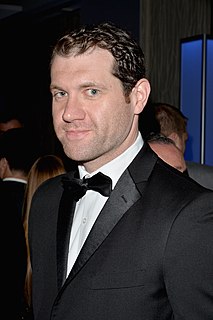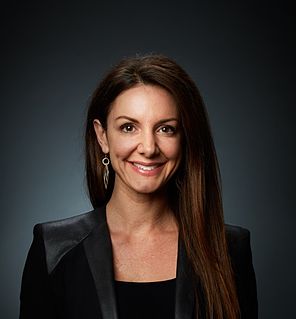A Quote by Judith Butler
If gender is eradicated, so too is an important domain of pleasure for many people. And others have a strong sense of self bound up with their genders, so to get rid of gender would be to shatter their self-hood.
Related Quotes
I think growing up, the assimilation of most cultural conventions typically encouraged by a heightened awareness of gender and sex encourages a sort of separation of the self. What's so special about 'Hanna' is that her upbringing has negated this indoctrination; she's almost absolved of the pressures of gender or gender itself.
I met people on college campuses who were defining themselves as genderqueer to express revolutionary feelings, or to communicate their individuality; they were gender fluid without being gender dysphoric. This phenomenon may be culturally significant, but it has only a little bit in common with the people who feel they can have no authentic self in their birth gender.
Someone who is experiencing gender dysphoria would be someone who feels that his biological sex doesn't match up with the gender that he feels. So, I might feel like I am a woman trapped in a male body, and you can imagine how horrible that would be to have that kind of experience or to think that you're a man trapped in a woman's body. It must be just a terribly difficult experience for those who experience gender dysphoria. But this is not anything to do with homosexual attraction or activity. It's a matter of one's self-perceived identity.
One of the concepts I was having trouble illustrating was the concept that administrative systems create narrow categories of gender and force people into them in order to get their basic needs met - what I call "administrative violence." I had images of forms with gender boxes and ID cards with gender markers, but I also wanted an image that would capture how basic services like shelters are gender segregated.
Some trans people thought that in claiming that gender is performative that I was saying that it is all a fiction, and that a person's felt sense of gender was therefore "unreal." That was never my intention. I sought to expand our sense of what gender realities could be. But I think I needed to pay more attention to what people feel, how the primary experience of the body is registered, and the quite urgent and legitimate demand to have those aspects of sex recognized and supported.
My sense is that we may not need the language of innateness or genetics to understand that we are all ethically bound to recognize another person's declared or enacted sense of sex and/or gender. We do not have to agree upon the "origins" of that sense of self to agree that it is ethically obligatory to support and recognize sexed and gendered modes of being that are crucial to a person's well-being.
When we get our sense of self from only one place, when something goes wrong and the inevitable happens, it can crush you emotionally, spiritually and physically. So it’s important not to believe you are defined by one place, one relationship or one thing, and to find ways to keep your sense of self strong.


































